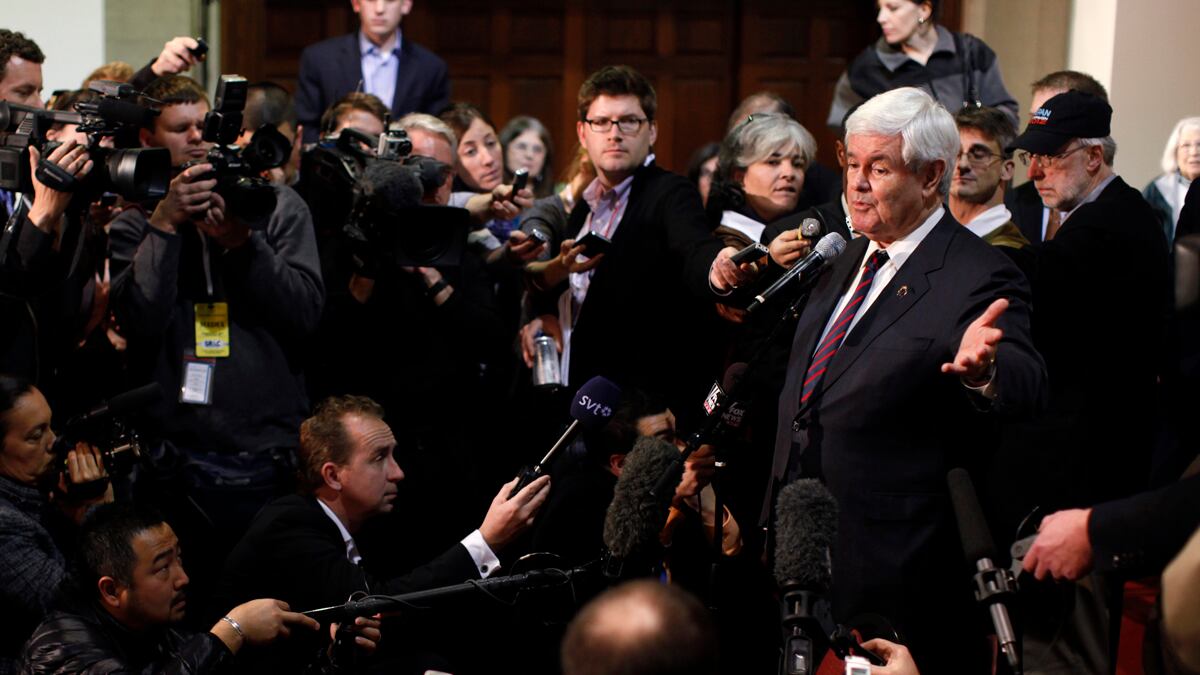At Thursday’s Republican presidential debate in Charleston, S.C., Newt Gingrich made a stunning confession. “I am not capable,” he said, “of being a sort of ‘traditional’ candidate.”

I kid.

At Thursday’s Republican presidential debate in Charleston, S.C., Newt Gingrich made a stunning confession. “I am not capable,” he said, “of being a sort of ‘traditional’ candidate.”

I kid.